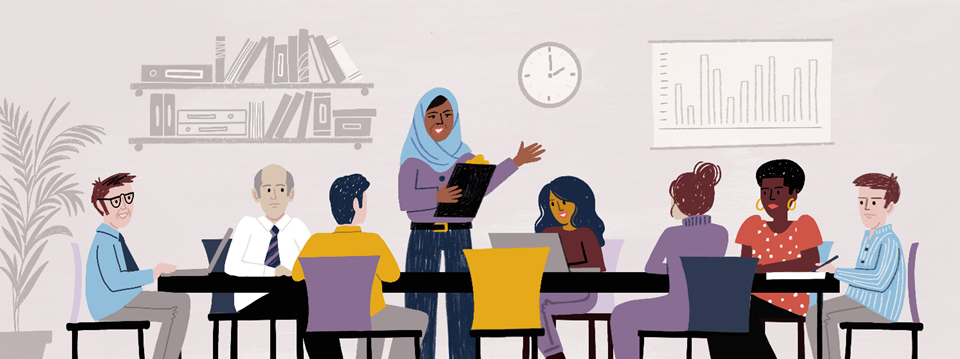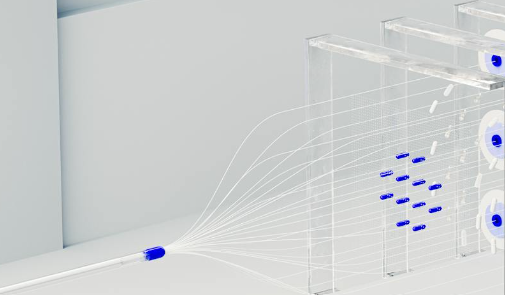Leadership as the cornerstone of Research Integrity
Professor Matthew Campbell explores how research integrity is shaped through everyday leadership decisions and highlights three key leadership levers that strengthen and influence research culture.
Why mentoring matters for career development and research impact
To mark International Mentorship Month, Audrey J. Murrell, Ph.D. — lead advisor of the Epigeum’s upcoming ‘Mastering Mentoring’ program — explores the impact of mentoring and how intentional, well‑supported approaches can be beneficial for learning.
SRM Case Studies – How ‘real-life lessons from the field’ inspire one of our core learning resources
In this guest post, Kyra van Weenen, Commissioning Editor for Sage Research Methods explores the unique concept behind Sage’s flagship Research Methods Case Studies, and how they support researchers and students in conducting their own research.
How a Wikipedia citation can benefit your research (yes, really)
You’ve probably heard it before: “Never cite Wikipedia in your research paper.” And it’s good advice. But maybe you haven’t heard about how using Wikipedia (especially its citations) actually strengthens your work and even helps others discover it later. And this post is all about that!
Author resolutions: Setting yourself up for success in 2026
With 2025 ending, you may be thinking about reviewing your research progress and preparing for the upcoming year. If you don’t know where to start, here are some suggestions on organizing your work and planning for 2026.
Webinar recap: How to do a systematic review
Whether you’re tackling a systematic review for your own research project, or supporting students, this recent Sage Campus webinar is an essential watch.
Dr Gemma Cherry and Dr Michelle Maden, co-authors of Doing a Systematic Review: A Student’s Guide, break down the rigorous process into 10 clear, manageable steps. You’ll learn the difference between systematic and scoping reviews, the critical need for a registered protocol, and how to craft a focused question using frameworks like PICO.
Embracing AI as a collaborator in data visualisation design
Rapid advancements in Artificial Intelligence have instigated introspection across the data visualisation field. Though swathes of AI discourse are characterised by hype and gimmickry, if you cut through the noise, it’s clear we are facing a significant new era of technological progress. It’s time to evolve, or die, as the saying goes. But what should our relationship with AI be, particularly with generative AI? To what extent could our authentic craft be usefully augmented by an artificial one?
Why publish open access: A researcher’s guide
Publishing your research Open Access (OA) ensures that it reaches the widest possible audience — freely and immediately. This guide walks you through what OA means, its key benefits, and how Sage’s flexible publishing options help researchers share their work responsibly, increase visibility, and meet funder or institutional requirements.
Explore what’s new in Epigeum’s Research Skills Toolkit
We’re excited to share that Research Methods - part of the 'Research Skills Toolkit' - has been updated to reflect today’s research landscape. Discover brand new content on Gen AI, Data Literacy and more – designed to support researchers with the skills they need in their careers.
Researching society and culture with generative AI
In this guest post, Sage author Carol Rivas explores the current AI capabilities for researching society and culture.
Helping students critically engage with research
There are some perennial challenges to doing a research project that all of us have faced: formulating a research question, wrestling with paradigmatic assumptions, keeping on track of a multi-year project. The Essential Guide to Doing Your Research Project has been helping students (and supervisors) for more than 20 years. But in a post-pandemic world with the transformations being wrought by artificial intelligence, datafication, and the rise and fall of social media platforms, there are new challenges facing researchers.
Why you should promote your article the year it's published
Publishing is just the start. Promote your article the year it’s released to boost visibility, citations, media coverage, and career impact. From CV updates to conference invites, early promotion ensures your work stays relevant and reaches the right audience.
Research methods in motion: What’s new on Sage Research Methods platform in 2025
Each year, Sage Research Methods (SRM) evolves to reflect the shifting landscape of research practice. The 2025 updates are no exception—bringing fresh perspectives, timely topics, and practical tools to support researchers at every stage of their journey. Here’s a look at what’s new, and why it matters.
Converting a thesis or dissertation into a manuscript
These seven lessons will help you transform your dissertation into a published research article.
'Research with Impact: Creating Meaning and Value' launch
Epigeum team has launched the US edition of Research with Impact: Creating Meaning and Value - find out how the program can help your institution promote a culture of broader impact and train your researchers to embed it throughout their research journey.
A seat at the table: A short primer on addressing citational inequity
While progress has been made, social and systemic biases continue to produce inequities in scholarly reference lists, citational indexes, and even journal metrics. This guidance outlines steps that researchers can take toward achieving more inclusive and equitable scholarly citational practice.
Sage Campus Courses: Reviewed, Revised and Realigned
As part of our ongoing commitment to delivering high-quality online learning, we are excited to announce a series of updates to our Sage Campus courses! These enhancements are designed to support academic success by providing practical resources and empowering learners at every stage of their academic journey.
How to Transform Teaching Statistics using JASP: Webinar and Q&A
Last month Sage hosted an exclusive webinar with the JASP founder, Eric-Jan Wagenmakers, and fellow JASP creator Johnny van Doorn. Based at the University of Amsterdam, these renowned experts introduced the world of teaching statistics using JASP.
Popular Paper Examines Ensuring Trustworthiness in Qualitative Analysis
Interviews with this year's winners of Sage's 10-year-impact award, Elo Satu and Helvi Kyngäs.
New Launch: Sage Research Methods Video - Research Design and Planning
We are thrilled to announce the launch of the Research Design and Planning video collection, a powerful new resource designed to equip researchers with the essential tools and insights to craft high-impact research projects. Whether you're a student, academic, or professional researcher, this collection is your go-to guide for mastering the art and science of research design.




















